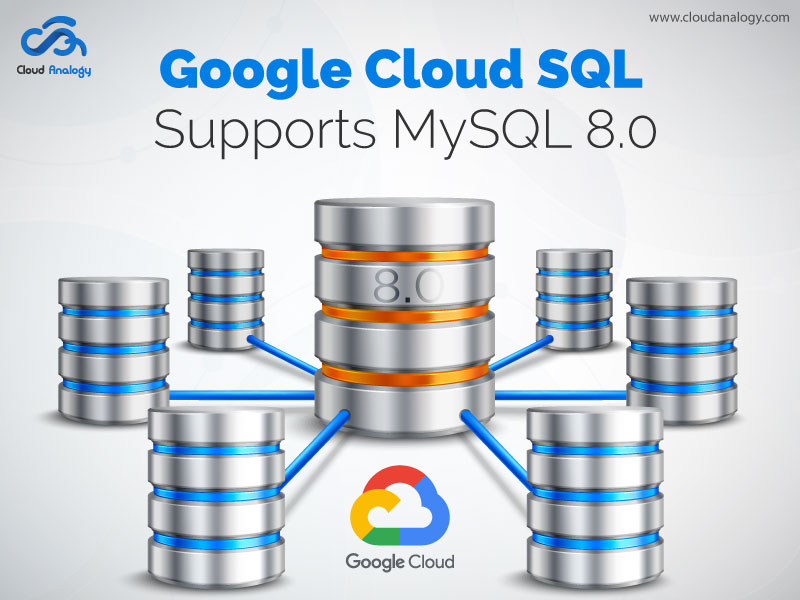Google Cloud has announced that MySQL 8 is now available on Cloud SQL, the fully managed database service for MySQL, PostgreSQL, and SQL Server. This Google Cloud update enables developers to access several robust and out-of-the-box features such as instant DDL statements (e.g., ADD COLUMN), atomic DDL, privilege collection with roles, window functions, and extended JSON syntax to keep your businesses operations running efficiently, which in turn helps you be more productive.
Cloud SQL now supports MySQL 8.0, 5.7, and 5.6, providing up to 416 GB RAM and 30 TB data storage for each managed database. Developers can leverage private services access and VPC Service Controls, using Google Cloud VPC, to ensure a secure connection with MySQL 8.0 instance.
Cloud SQL Proxy allows users with appropriate permissions to seamlessly connect to second-generation Cloud SQL databases without manually dealing with IP whitelisting or SSL certificates.
New features available with MySQL 8.0 on Google Cloud include instant DDL statements, which provide better responsiveness, performance, and availability in production environments.
Kovid Rathee, the senior consultant at Servian, remarked, “MySQL 8 comes with a fantastic set of features like online DDL, the much-awaited window functions, enhanced JSON features, recursive common table expressions (CTEs) for hierarchical querying, default UTF8MB4 collation & encoding, soft deletes, invisible indexes, descending indexes, staged rollouts and more.”
Amazon RDS has supported MySQL 8.0 since October 2018, but Amazon Aurora is still only compatible with MySQL 5.6 and 5.7. Azure Database for MySQL introduced support for MySQL 8.0 in late 2019, while Oracle recently launched its MySQL database service on the Oracle Cloud Infrastructure with support for MySQL 8.0.
Amazon RDS currently supports small versions up to 8.0.20, and Google Cloud starts with 8.0.18, while Azure supports 8.0.15. In contrast, Oracle promises to be up-to-date with the latest version of MySQL Server, currently 8.0.21.



